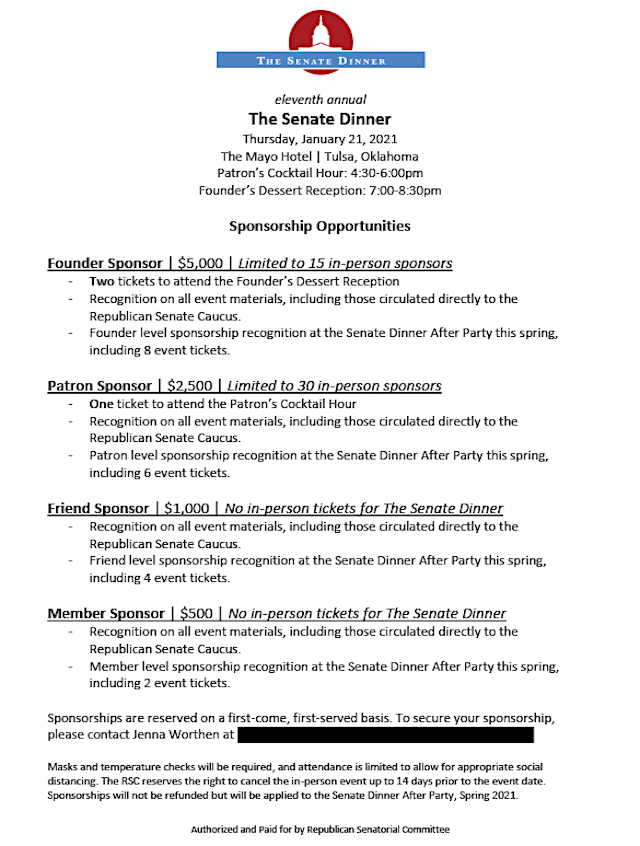As is prone to happen, the past two Fridays have been filled with news that may have slipped past your weekend radar.
Never fear! Articles can be read after the fact, and we are all allowed to remember that some things happened a bit ago before all these other things happened on this never-ending (un)amusement park ride called the 24/7 news cycle. Welcome to the concept of a roundup, where you can read about a few different stories all at once.
In this roundup, two of the stories outlined below include new remarks from state legislators and the director of the Ethics Commission made directly to NonDoc over the weekend.
To avoid prattling on further about the apocalyptic nature of modern life and the age-old yet increasingly relevant question of whether a meteor will hurry up and wipe humans off the map already, let’s dive into the headlines.
Jonathan Hernandez accused of sex crime

Late Friday, screenshots showing the jail booking of 21-year-old Jonathan Hernandez, the chairman of the Oklahoma College Republicans and an active young politico on the state GOP scene, began circulating. Hernandez was arrested Friday on charges of sodomy and lewd or indecent proposals to a child under age 16.
Details about Hernandez, his arrest and the alleged crime so far include:
- Hernandez’s bail was set at $50,000, and he has been released;
- According to the probable cause affidavit obtained and published by The Lost Ogle, a now 16-year-old male told police that, two years earlier, Hernandez engaged him in multiple sexual encounters, often on the campus of Oklahoma Christian University;
- Hernandez was paid $2,200 on March 4 by the campaign of Republican superintendent of public instruction candidate Ryan Walters. The payment description read “campaign manager salary,” although the political consultant who has essentially functioned as Walters’ campaign manager, Matt Langston, told media that Hernandez “worked less than two weeks for the campaign in an outreach role, but he did not adequately meet our needs” and was terminated;
- Hernandez had been an employee of the Oklahoma State Senate this year, performing a variety of duties, including filling in for executive assistants when they had days off;
- The day before he was arrested, Hernandez spoke during a ceremony launching a new Republican National Committee community center in south Oklahoma City aimed at recruiting Hispanic voters to the GOP.
Photos of Hernandez posing with Gov. Kevin Stitt delighted some Stitt critics on Twitter, and collages were crafted to include pictures of Stitt with the recently-charged founders of Epic Charter Schools. Eventually, however, some people on the social media platform asked for the alleged child sex crime to be de-politicized.
Meanwhile, new Oklahoma Republican Party Chairman A.J. Ferate released a statement.
“The Oklahoma Republican Party condemns all instances of sexual assault in the strongest possible terms. Victims deserve justice, and their assailants should be punished to the fullest extent of the law,” Ferate said.
From a political standpoint, perhaps most unfortunate is that Hernandez’s charges come six months after then-Rep. Jose Cruz (D-OKC) resigned after being accused of sexual battery during a New Year’s Eve party.
Oklahoma’s growing, hard-working and family-oriented Hispanic community has limited representation in government and in local politics already, and the revelations about two rising political voices are disappointing to people seeking to expand their community’s influence in civic matters.
The Senate Dinner gets a $62,750 bill

Speaking of the Oklahoma State Senate, the Oklahoma Ethics Commission finalized a settlement agreement Friday with the Republican Senatorial Committee, a key political action committee benefiting the upper chamber’s GOP Caucus for nearly two decades.
Details of the settlement can be found here, including:
- Acknowledged violations of rules regarding a “limited PAC,” including the acceptance of more than $35,000 of improper contributions, either from corporations or that were “earmarked” to benefit specific candidates;
- “Potential inconsistencies between the [PAC]’s stated purpose and its actual activities”;
- An acknowledgment and reminder that “contributions to PACs must be voluntary and not obtained in exchange for any advantage, promise for an advantage or to avoid a disadvantage”;
- A total payment of $62,750 to the state’s General Revenue Fund, with $25,000 of that constituting a civil penalty;
- An agreement for the PAC to amend filings and cease operations within 60 days.
What exactly was the PAC doing? That’s a great question, which the settlement agreement only vaguely answered. Clues can be found digging through the PAC’s Ethics Commission filings.
For starters, the Republican Senatorial Committee is a “limited” PAC, meaning it can only receive up to $5,000 from any single donor and cannot take direct corporate money. It raised more than $222,000 and spent more than $246,000 in 2020. In 2021, the PAC raised about $161,000 and spent about $95,000. Nolan Clay of The Oklahoman reported that the PAC raised nearly $3 million since it was established in the mid-2000s.
For the past 12 years, the PAC has benefited from an annual fundraiser called “The Senate Dinner,” which is typically held in Tulsa at The Mayo hotel within a few weeks of session starting. In recent years, a second event — referred to as “The After Party” — has been held toward the end of session.
A review of the PAC’s most recent filings show donations from:
- Numerous employee PACs for large corporate entities;
- Two dozen influential lobbyists;
- Prominent individuals like George Kaiser, Jay Helm and David Rainbolt;
- Tribal governments such as the Chickasaw, Cherokee, Choctaw, Osage and Citizen Potawatomi nations.
Beyond the Republican Senatorial Committee reflecting the massive money in electoral politics, the actions that led to the Ethics Commission investigation and settlement agreement were largely clerical, at least according to Senate President Pro Tempore Greg Treat (R-OKC).
“I’m glad to have a few-years-old problem behind us. It’s a lot of just clerical-type errors, as best I can tell,” Treat said. “As I looked at and reviewed it, I am confident there was nothing nefarious. It was just mistakes, and people who gave checks (…) that look like PAC checks, and they’ve given PAC checks in the past, but they weren’t out of the PAC accounts, apparently.”
Treat said he learned about the Ethics Commission investigation — identified as Case No. 2020-02 by the agency, meaning it was launched in 2020 — sometime around the start of the year. Candidates for office are not allowed to be officers of PACs, but legislative leadership historically maintains an influential relationship over PAC chairpersons. So while Treat and other GOP Senate leaders are able to advise registered PAC agents about how to distribute funds, Treat said his knowledge of the exact activities flagged by the Ethics Commission is limited.
For instance, Treat said he was not interviewed or called to testify before the Ethics Commission. He said his understanding is that the agency reviewed PAC activity from 2017 to 2022. (The PAC’s current registered officers are Chairperson Jeff Starling, an attorney in the oil and gas industry, and Treasurer Jewel Watts, an accountant from Yukon. Neither returned phone calls Sunday evening.)
Treat said he had no idea what the settlement agreement was alleging about “potential inconsistencies” between the PAC’s stated purpose and its actual activities.
“I didn’t understand that at all, because the purpose and mission of that PAC was to elect Republicans, and as far as I know, that is all we ever did. So I don’t know what that was referencing,” Treat said. “I do know on the earmark deal, that’s again a clerical deal. Someone wrote [a senator’s] name on the memo of a check, and the PAC did not give money to that member that cycle. I think probably what happened is that member called and said, ‘Hey, will you come to The Senate Dinner?’ And [the donor] wrote their name on the check memo.”
Treat also provided greater detail regarding a note in Clay’s story about his prior employment by the PAC in 2014, years before he became the Senate’s president pro tempore. First elected in a 2011 special election, Treat said then-Senate President Pro Tempore Brian Bingman asked him to run the PAC’s political operations in 2014.
“Brian Bingman came to me and said, ‘Greg, you’ve got more experience politically than anyone we could hire. (…) Will you please do it?’ recalled Treat, a former staff member for U.S. Sen. Tom Coburn.
Treat said he wondered if he ethically and legally could take the job. He said he asked attorneys who reached out to then-Ethics Commission director Lee Slater, who Treat said confirmed there was no ethical conflict with a sitting senator being a PAC consultant.
“So we worked out a deal, and I intentionally cut my fees to a much lower level than [the prior consultant] had because I just didn’t want to take advantage of the situation. I wanted to earn my keep,” Treat said. “We did a really good job. We won every race we were involved in.”
Asked whether The Senate Dinner will continue next year to the benefit of a new limited PAC, Treat said it would.
“We’ll continue fundraising to make sure we elect conservative Republicans,” Treat said.
To that end, Senate Republicans are also supported by the Senate Majority Fund, an unlimited PAC founded in 2010 that can accept corporate contributions of any size to fund independent expenditure advertising efforts.
Both the Republican Senatorial Committee and the Senate Majority Fund have contracted with James Martin Company LLC for fundraising services. That company is owned by Jenna Worthen, one of the state’s leading political fundraisers and consultants. Beyond saying she was not interviewed during the Ethics Commission investigation, Worthen declined to comment when asked about the settlement.
Oklahoma Ethics Commission executive director Ashley Kemp said the commission’s vote on the Republican Senatorial Committee settlement agreement included a requirement preventing her from discussing details of the agency’s investigation. However, she did provide a statement.
“The commission takes the acceptance and use of prohibited corporate contributions seriously. In recent years it has actively investigated, entered settlement agreements, and filed lawsuits for that activity,” Kemp said. “The commission believes in not only deterring conduct that may violate the rules but also in educating others to identify and correct course if they are engaged in similar activity.”
One of the Republican Senatorial Committee’s former chairpersons, Jarred Brejcha, was appointed as a member of the Ethics Commission in July 2019 by House Speaker Charles McCall. Bingman, who had termed out of the Legislature by then, simultaneously succeeded Brejcha as chairman of the PAC. Brejcha recused from the case settled Friday.

Judge appoints self to continue Court of Existing Claims
Eight years after the Oklahoma Legislature moved the state’s workers’ compensation system from a court model to an administrative model, hundreds of court cases remain unadjudicated in what has been called the Court of Existing Claims.
A brouhaha between House and Senate Judiciary Committee chairpersons this past legislative session, however, resulted in the Court of Existing Claims not having its judge extended beyond July 1.
Facing the expiration of her position, Judge Margaret Bomhoff took the unusual and perhaps unprecedented step of appointing herself as a special judge to oversee remaining Court of Existing Claims cases.
Dale Denwalt of The Oklahoman outlined the concerns of workers’ compensation attorneys who feared what might have been “a court without a judge.” Denwalt reported:
After lawmakers adjourned in May, (attorney Bob) Burke quickly filed a case at the Oklahoma Supreme Court asking justices to use their power to keep Bomhoff on the bench until the Legislature could fully address the issue.
The attorney general’s office opposed that request, arguing that the Supreme Court has no authority to intervene. By not extending the judge’s term, lawyers for the AG’s office argued that the Legislature “abandoned” the CEC after winding down its operations for the past eight years.
(…)
On June 27, five days before Bomhoff’s term was scheduled to end, the Supreme Court said it had no jurisdiction to hear Burke’s case.
Denwalt also examined the legality of Bomhoff appointing herself as a special judge:
State law allows the CEC judge to appoint temporary judges, but it’s unclear whether Bomhoff’s order could stand up to legal scrutiny if challenged.
Bomhoff and CEC Director Dustin Davison both declined to discuss the order with The Oklahoman. The attorney general’s office has not responded to a request for comment
House Civil Judiciary Committee Chairman Chris Kannady (R-OKC) told NonDoc he has been frustrated by Bomhoff’s unilateral action.
“The decision for a judge to appoint themselves seems a little bit odd in any scenario,” Kannady said. “But regardless of the scenario, I believe that the appointment of the Court of Existing Claims judge falls within the purview of the other two branches — the governor and the Legislature — and I believe this creates a constitutional issue that cannot be overcome with the judge appointing themself.”
Kannady said he stands by “the global result of what happened” with a slate of judiciary bills that died in the 2022 regular session.
“What should happen is the Legislature and the governor decide what ultimately happens (with the Court of Existing Claims),” Kannady said. “I want the process that is set forth under the constitution and the statutes to make that determination.”
Transportation Commission meeting today
If you’ve made it this far in today’s roundup, that means you really want to know what’s going on in state government. Congratulations and sorry.
At 11 a.m. today, however, you can get a big dose of government in action at an Oklahoma Transportation Commission meeting.
On the agenda, Item 99 involves approval or disapproval of the Turnpike Authority’s proposed route expansions, which have been the source of significant controversy, particularly among people whose property could be subject to eminent domain.
It’s possible that anti-turnpike demonstrators could attend today’s commission meeting, which can be viewed online.






















